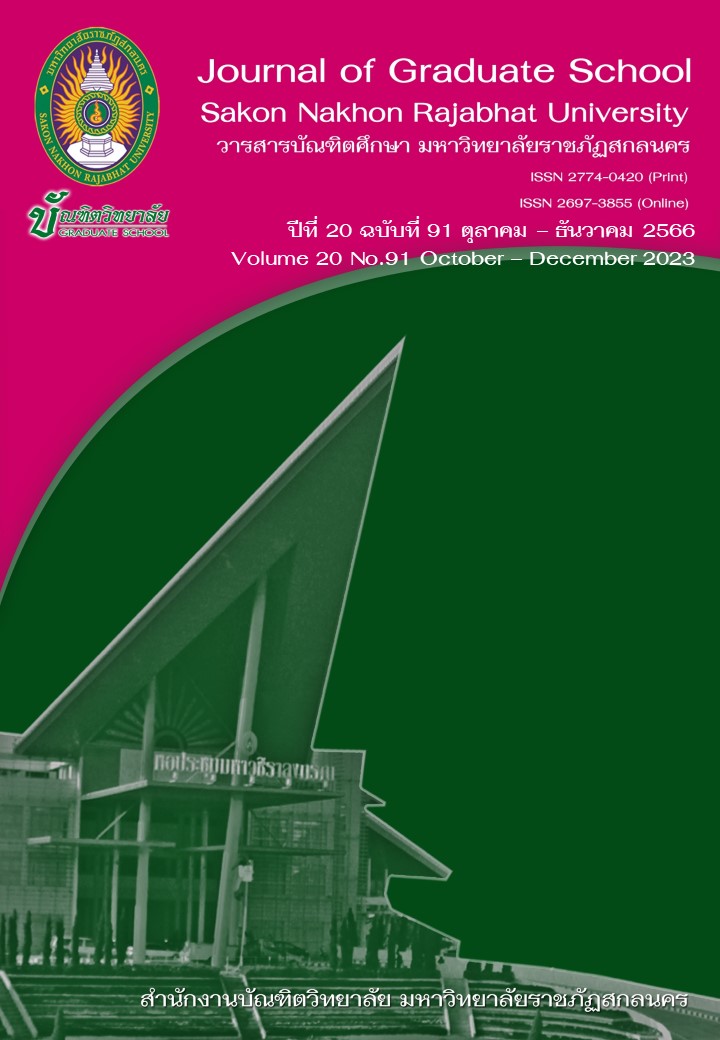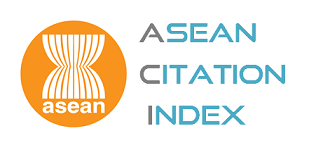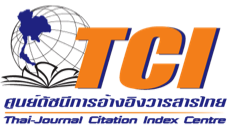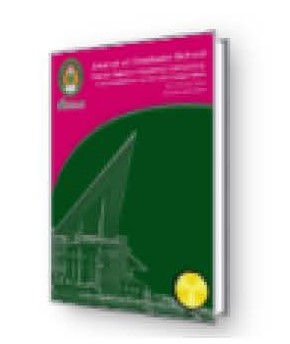DEVELOPMENT OF INTENSIVE TUTORING SUPPLEMENTARY MEDIA FOR EXAM PREPARATION IN THE INT1004 COURSE: INTRODUCTION TO COMPUTER FOR BUSINESS
Keywords:
Intensive Tutoring Supplementary Media, Learning AchievementAbstract
The objectives of this research were 1) to develop intensive tutoring supplementary media for exam preparation in the INT1004 Course: Introduction to Computer for Business, 2) to investigate the learning achievement of learners after the intervention, and 3) to examine the opinions toward the system quality and benefits that learners received after the intervention. The sample, obtained through simple random sampling, consisted of 100 students selected from a population of 450 students enrolled in the INT1004 course entitled Introduction to Computer for Business in the second semester and the summer semester of the academic year 2020. The research tools included 1) an intensive tutoring supplementary media for the INT1004 course entitled Introduction to Computer for Business, 2) a knowledge assessment form for pre-and post-tests, and 3) a set of questionnaires. The data were analyzed by calculating statistical values such as frequency, percentage, mean, standard deviation, and t-test Dependent Samples.
The research results revealed that 1) The developed media consisted of four key components: content, learning management, communication, and evaluation, 2) The post-learning achievement was higher than that before the intervention at the .01 level of significance, and 3) The learners’ opinions toward a system quality and benefits of the developed media were overall at a high level.
References
คมสิทธิ์ สิทธิประการ และคณะ. (2561). ผลสัมฤทธิ์การเรียนการอ่านขั้นสูง โดยการเรียนด้วยบทเรียนออนไลน์. คณะวิทยาศาสตร์และเทคโนโลยี มหาวิทยาลัยเทคโนโลยีราชมงคลศรีวิชัย. เข้าถึงได้จาก https://riss.rmutsv.ac.th/project/?id=2769.html. 31 มีนาคม 2564.
เจริญ ภูวิจิตร์. (2021). การจัดการเรียนรู้ทางออนไลน์อย่างมีประสิทธิภาพในยุคดิจิทัล. เข้าถึงได้จาก http://www.nidtep.go.th/2017/publish/doc/20210827.pdf. html. 18 ธันวาคม 2564.
ฐาปนีย ธรรมเมธา. (2557). อีเลิรน์นิง: จากทฤษฎีสู่การปฏิบัติ e-Learning: from theory to practice. กรุงเทพฯ: สำนักงานคณะกรรมการการอุดมศึกษา.
แนวหน้า. (2564). พฤติกรรมการเรียนออนไลน์. หนังสือพิมพ์แนวหน้า. เข้าถึงได้จาก https://www.naewna.com/relation/502760.html. 24 เมษายน 2564.
บุญส่ง นิลแก้ว. (2541). การประเมินโครงการทางการศึกษา. เชียงใหม่: ภาควิชาประเมินผลและวิจัยการศึกษา คณะศึกษาศาสตร์ มหาวิทยาลัยเชียงใหม่.
พลอยณัชชา เดชะเศรษฐ์ศิริ. (2559). การศึกษาผลสัมฤทธิ์ทางการเรียนในรายวิชาภาวะผู้นำและการจัดการสมัยใหม่โดยใช้บทเรียนอิเล็กทรอนิกส์ออนไลน์. The Golden Teak: Humanity and Social Science Journal (GTHJ.). 22(พิเศษ), 114-123.
มหาวิทยาลัยรามคำแหง. (2562). วิสัยทัศน์และพันธกิจ. เข้าถึงได้จาก http://www.ru.ac.th. html. 31 มีนาคม 2564.
สุพัชชา คงเมือง. (2020). การพัฒนาสื่อออนไลน์เพื่อเสริมทักษะการสอบภาษาอังกฤษ RMUTSV Test. วารสารวิชาการการประยุกต์ใช้เทคโนโลยี, 6(1), 18-28.
สำนักงานคณะกรรมการศึกษาแห่งชาติ. (2545). พระราชบัญญัติการศึกษาแห่งชาติ พ.ศ. 2542 และที่แก้ไขเพิ่มเติม (ฉบับที่ 2) พ.ศ. 2545. กรุงเทพฯ: พริกหวานกราฟฟิค.
สำนักงานเลขาธิการสภาการศึกษา. (2560). แผนการศึกษาแห่งชาติ พ.ศ. 2560-2579. กรุงเทพฯ: พริกหวานกราฟฟิค.
อุไร ทองหัวไผ่ และคณะ. (2563). คอมพิวเตอร์เบื้องต้นทางธุรกิจ. กรุงเทพฯ: สำนักพิมพ์มหาวิทยาลัยรามคำแหง.
_______. (2563). 99429 เอกสารการสอนชุด วิชาประสบการณ์วิชาชีพวิทยาการคอมพิวเตอร์: หน่วยที่ 6 ดิจิทัลเชิงประยุกต์ด้านการศึกษา. นนทบุรี: โรงพิมพ์มหาวิทยาลัยสุโขทัยธรรมาธิราช.
Delone, W. H., & Mclean, E. R. (2003). The DeLone and McLean model of information system success: a ten-year update. Journal of management information system, 19(4), 9-30.
Holsapple, C. W., & Lee-Post, A. (2006). Defining, assessing, and promoting e-learning success: An information systems perspective. Decision sciences journal of innovative education, 4(1), 67-85.
Downloads
Published
How to Cite
Issue
Section
License
Copyright (c) 2023 Journal of Graduate School Sakon Nakhon Rajabhat University

This work is licensed under a Creative Commons Attribution-NonCommercial-NoDerivatives 4.0 International License.
บทความทุกบทความที่ตีพิมพ์ในวารสารบัณฑิตศึกษา มหาวิทยาลัยราชภัฏสกลนคร ถือว่าเป็นลิขสิทธิ์ของบัณฑิตวิทยาลัย มหาวิทยาลัยราชภัฏสกลนคร










